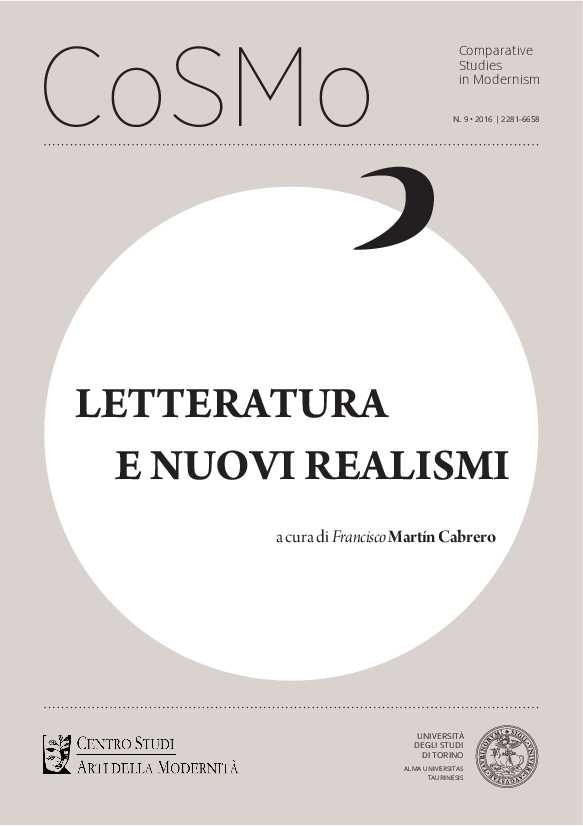Nuovo Realismo 2016
Abstract
The essay presents the traits of what has recently been called new realism in philosophy, arguing that this new trend aims at engaging with the existence of certain classes of objects, trying to avoid devolving to scientific thinking all questions about the existence of reality. The new realistic philosphical approach is indeed closer to 19th-century idealism than to postmodern thought. It finds its forebears in American “new realism” and “critical realism” and tries to oppose the “transcendental fallacy”, that is, the confusion between ontology and epistemology, and asks whether the 20th-century wave againt realism, and the deconstruction of metaphysics, meant a comtinuity or a break with 19th-cent idealism. By a survey of the rare new realists who meant to oppose both 20th-century post-idealism and analytical philosophy, new realism tries to oppose the “hermeneutic fallacy”. The author traces the steps by which the notion of new realism came to the fore and highligths: a coming together of new realism, speculative realism, and the realistic elements in phenomenology and analytic philosophy. The essay ends up allowing for the existence of different kinds of realisms: “negative realism”, “neutral realism”, “positive realism”.
Downloads
Gli autori mantengono i diritti sulla loro opera e cedono alla rivista il diritto di prima pubblicazione dell'opera, contemporaneamente licenziata sotto una Licenza Creative Commons - Attribuzione che permette ad altri di condividere l'opera indicando la paternità intellettuale e la prima pubblicazione su questa rivista.








